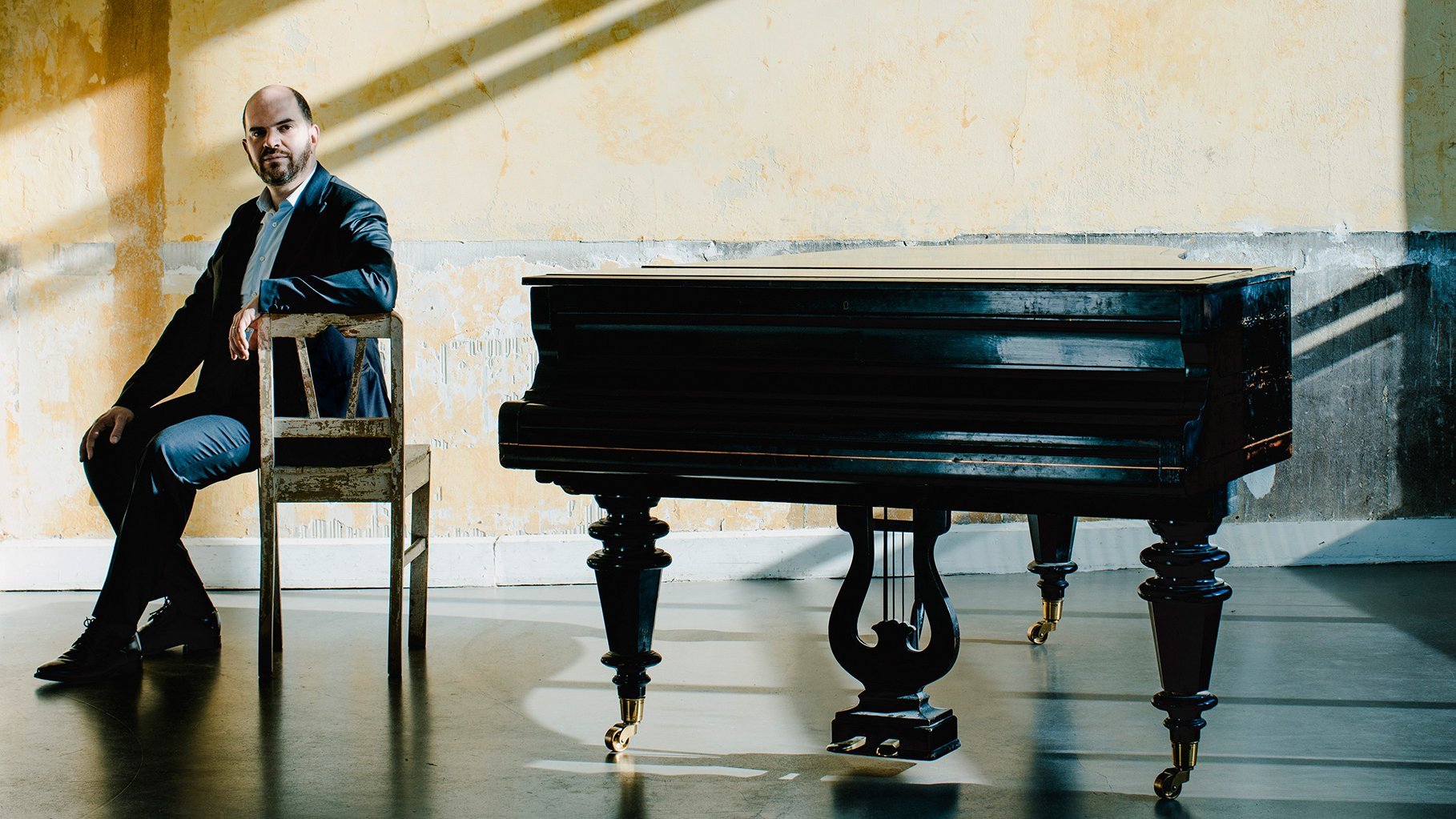- Portrait

“Sensational” was how the critics of rbbkultur described this debut: in April 2016, Kirill Gerstein performed for the first time as a soloist in the orchestral concerts of the Berliner Philharmoniker and enthralled audiences with his performance of Sergei Rachmaninoff’s Second Piano Concerto, a work that is among the most demanding pieces of the repertoire. “One was never aware at all just how technically difficult the piano part is,” said the review.
“When the orchestra had to play a melody and the pianist took it over shortly afterwards, it immediately sounded several kilos lighter.” His transparent, weightless playing, even in the most powerful passages, is considered Gerstein's trademark. Everything seems relaxed and natural to him, at the same time every note appears well placed, every bar perfectly thought out. It is no surprise that the now 40-year-old enjoys a global career.
It began in 2000 with his concert debut with the Tonhalle Orchestra Zurich, then in 2001, Kirill Gerstein won the Arthur Rubinstein International competition in Tel-Aviv. The following year, he was awarded the Gilmore Young Artist Award and used the prize money of 300,000 dollars to commission composition from Chick Corea, Oliver Knussen and Brad Mehldau, among others, followed by acclaimed debuts with the Staatskapelle Dresden, the Munich and Vienna Philharmonic, the Los Angeles and New York Philharmonic, in addition to the Salzburg Festival and the Lucerne Festival. The Berlin-based pianist performs all over the world. During his many travels – as Gerstein says in an interview – the piano and the pieces of music he practices on it give him a sense of home.
Jazz or classical?
Born in Voronezh in 1979 as the son of a mathematics teacher and a music teacher, Gerstein, who began playing the piano at the age of two, grew up in two musical worlds: classical and jazz. At first it seemed as if jazz fascinated him more. At the age of 14, he came to Boston as the youngest scholarship holder to Berklee College of Music to train as a jazz pianist. Two years later, however, he decided to pursue classical music, first studying under Solomon Mikowsky at the Manhattan School of Music, and later under Dmitri Bashkirov at the Escuela Superior de Música Reina Sofía.
As the musician, who has held a professorship at the Academy of Music Hanns Eisler Berlin since 2018, revealed in an interview for the Digital Concert Hall, dealing with jazz was and is an important component of his artistic development: "With jazz, I learned that music is more than the black dots on paper. My experience in improvisation and timing in jazz affect to an extent the way I play classical music."
A keen chamber musician
And there is something else that characterises his style: Kirill Gerstein's chamber music-like thinking. Whether he is performing as a soloist with an orchestra, as part of an ensemble or giving a solo recital. The pianist has already appeared several times in Philharmoniker concerts as a chamber musician, for example, in a trio with violinist Kolja Blacher and cellist Clemens Hagen, and together with members of the Berliner Philharmoniker.
Now he gives a solo recital in the Piano series and – as he puts it – "makes chamber music with himself." He undertakes a musical Journey through Central Europe, presenting works ranging from the First Viennese School to Contemporary music. The main destinations of this evening are Austria and Hungary – with Franz Schubert's Wanderer Fantasy and Franz Liszt's B minor Sonata.
Concert excerpt: Rachmaninov's Concerto for Piano and Orchestra No. 2